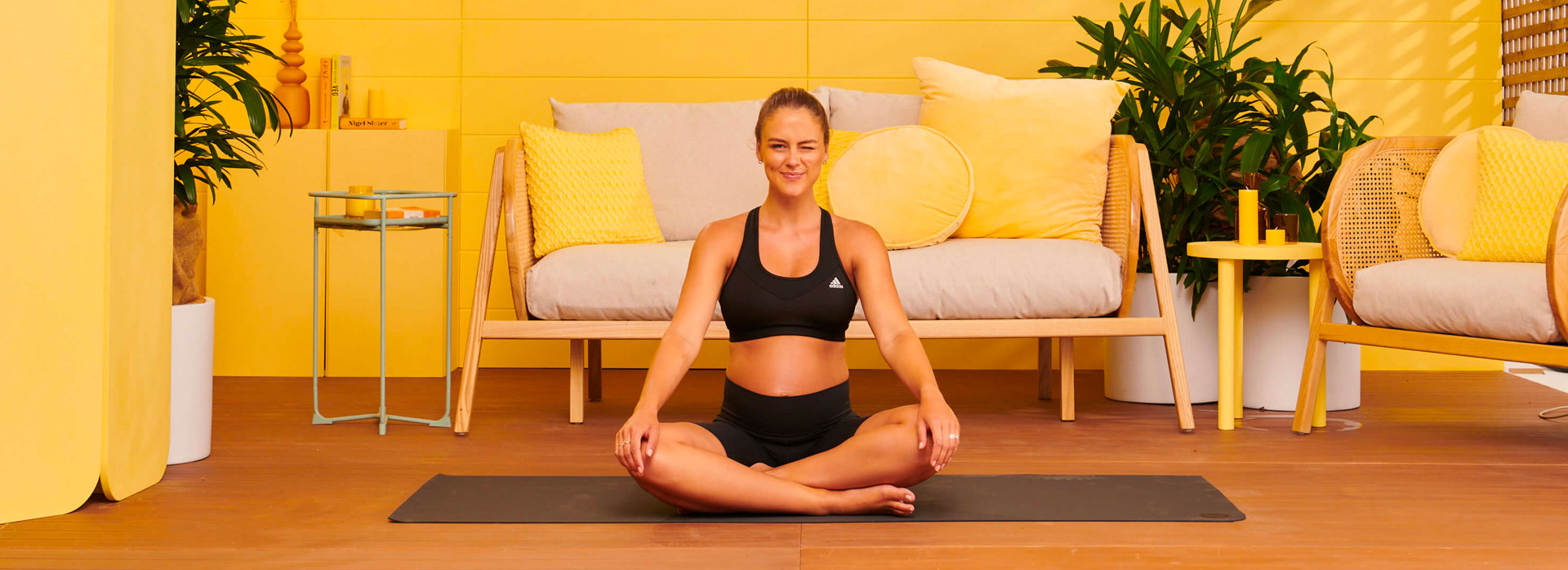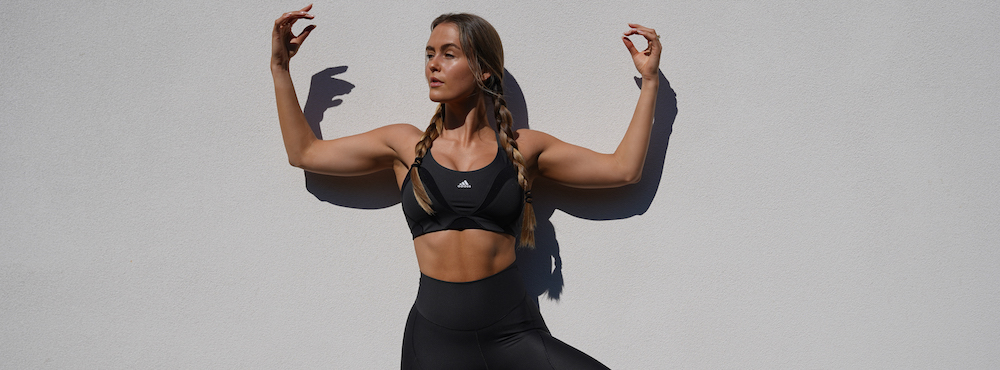Learn to reduce stress and anxiety, calm your mind and develop a healthy new habit.
All it takes is 5 minutes. Join us for Meditate in May!
Meditation can be intimidating as we often don’t know where to start, but we’re here to help you find your feet and instil you with the confidence to start meditating. Our incredible meditation coach, Meg, has answered the most common questions about the what, how, why and where of meditation.
What is meditation?
Meditation is the simple practice of creating a restful space where you guide your attention inward and observe your thoughts, feelings and bodily sensations without judgement or resistance. When we meditate, we use an anchor as a tool to rest our awareness on, which helps to strengthen the muscle of the mind. There are many different types of anchors, such as the breath, bodily sensations, visualisation, and mantra, to name a few.
Why should we meditate? What are the benefits?
The prevalence of chronic stress in our society is one of the main reasons why we should all meditate regularly. In fact, one of the most immediate effects of meditation is the engagement of the parasympathetic nervous system, which helps us to move out of a heightened, stressed, reactive state into a calmer, reflective, more regulated state. In addition to stress-reduction, thousands of studies using MRI and EEG have documented numerous wide and varied positive effects on our mental, physical and emotional wellbeing, such as:
How do I know if meditation is right for me?
Meditation is a highly accessible practice that can be done almost anywhere, at any time and by anyone. While there are very few limitations to meditation, it is recommended that people with a history of trauma, acute anxiety and depression or psychiatric disorders consult with their treating doctor before undertaking a regular practice.
Is there a particular time of day that I should meditate?
The best time to meditate is at the bookends of the day; either first thing in the morning or last thing at night. In order to successfully establish a new habit, you need to make it part of one of your existing daily routines, for example: wake up, meditate, and make coffee or get into bed, meditate, and go to sleep. Regardless of whether you prefer to meditate in the morning or evening, it’s most effective to consistently meditate at the same time each day as this will make your new habit much easier to sustain.
Where should I meditate?
It doesn’t matter where you meditate, so long as it’s free from distractions and interruptions. This could be a quiet corner of your home, in your bed, in an office at work or your parked car before you make the daily commute.
How should I position my body when I meditate?
Allow yourself to find a posture that feels inherently comfortable and will help your body to relax. This can be either sitting cross-legged, on a chair with your feet on the floor, laying down with a pillow under your head or knees – any position that will cultivate a sense of contentment within your physical body. You can also choose whether you close your eyes or simply focus your gaze on a point in front of you.
How long should I meditate for?
In order to reap the rewards of meditation, consistency is key. A shorter amount of time, such as 5 or 10-minutes is often more realistic and manageable to carve out in your day while still being effective. You might like to extend your practice to 15 or 20-minutes if your schedule allows and you enjoy the extra time to linger. Either way, the frequency in which you meditate is far more important than the duration of your practice.
I find I can't focus well, my mind seems to drift, am I doing it wrong?
There’s a common misconception that meditation is all about emptying the mind of thoughts. This is one of the main reasons why people doubt their ability to meditate and give up on the practice altogether. But thinking is actually a natural and completely unavoidable part of meditation.
After about 6-7 seconds of focusing your attention on your anchor, your awareness will start to wander off. You’ll find yourself going through your to-do list, planning what you’ll cook for dinner, coming up with ideas, playing out conversations, analysing a situation that’s going on in your life, and responding to sounds around you and sensations in your body. This is normal! It’s not a mistake, it doesn’t mean you can’t meditate, it’s not good or bad, right or wrong. It’s just your mind doing its job.
When your mind wanders off, the key is to notice the fact that you have lost focus and simply return your attention on your anchor again. The good news is that the more you train your mind to pay attention, the easier it will become to stay focused and your practice will begin to feel more effortless.
How should I feel after meditation?
There’s no right, wrong, good or bad way to feel after a meditation practice – in fact, one of the key elements of meditation is to learn to let go of any expectations and simply allow the experience to unfold without judgement or resistance.
Sometimes you might finish a practice feeling peaceful, relaxed and calm. Other times, meditation might leave you feeling restless, down or frustrated that it wasn’t a ‘perfect’ practice. Similarly, some days your meditation will effortless and other days it will effortful.
Both throughout and after your meditation practice, do your best to meet yourself and your experience with kindness, gentleness and compassion. Remind yourself that you’re human, you’re doing your best and no matter what arises, it’s okay. This is a practice in which the journey is of far more value than the destination.
Any final advice for someone thinking about giving Meditate in May a go?
Mediation is a life-long skill that is most effective when practiced regularly. It is about learning a whole new way of engaging with the outside world by transforming the way you engage with the inner landscape of your thoughts, bodily sensations and emotions. There will always be a myriad of obstacles and excuses to keep you from meditating, however, knowing why you’re committed to the practice is a pivotal component of staying on track.
Before you start Meditate in May, take some time to reflect on the driving force behind your intention to meditate. For example, you might wish to be more present and compassionate in your relationship with your loved ones, or perhaps you’d like to lower your stress levels so that you can sleep more soundly at night. Getting really clear on why you want to meditate will help you kick start Meditate in May with the dedication and commitment to stay the course and reap the rewards of this transformative practice.
Join us and Meditate in May.
Every week this May we are encouraging you to complete 4 meditations to help you build your meditation habit.

One question we’ve noticed that has been asked again and again is, ‘how do I get more sleep?’ So we’re inspired to dedicate this week’s blog post to this important question…

Pregnancy is an amazing journey that brings about such a rollercoaster of emotions; such as joy, excitement, worry and fear. Meditation during pregnancy can help mums-to-be shift out of the body’s “fight-or-flight” response by lowering cortisol levels and re-engaging the body’s parasympathetic nervous system. This not only helps to reduce stress but also leaves women […]

Setting aside time to exercise and meditate, no matter how exhausted I am, is a non-negotiable for me. It allows me to destress, declutter my mind, and believe it or not, actually gives me an energy boost, even when I’m running on empty!
